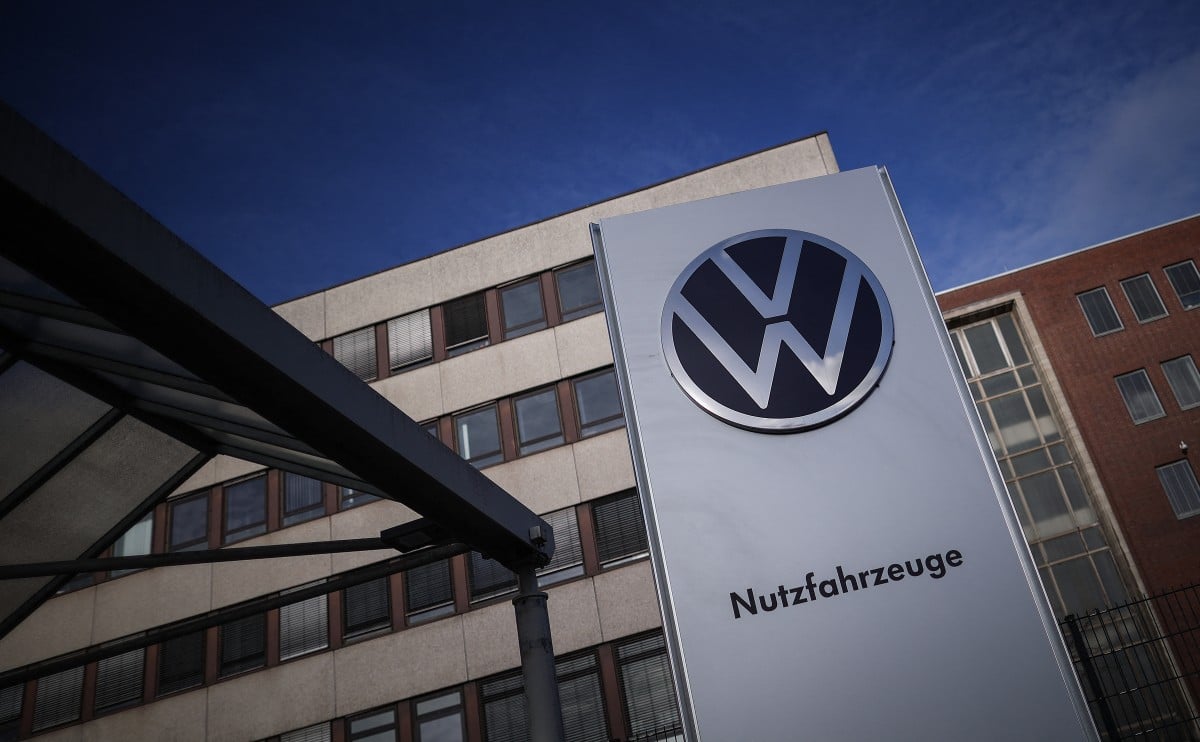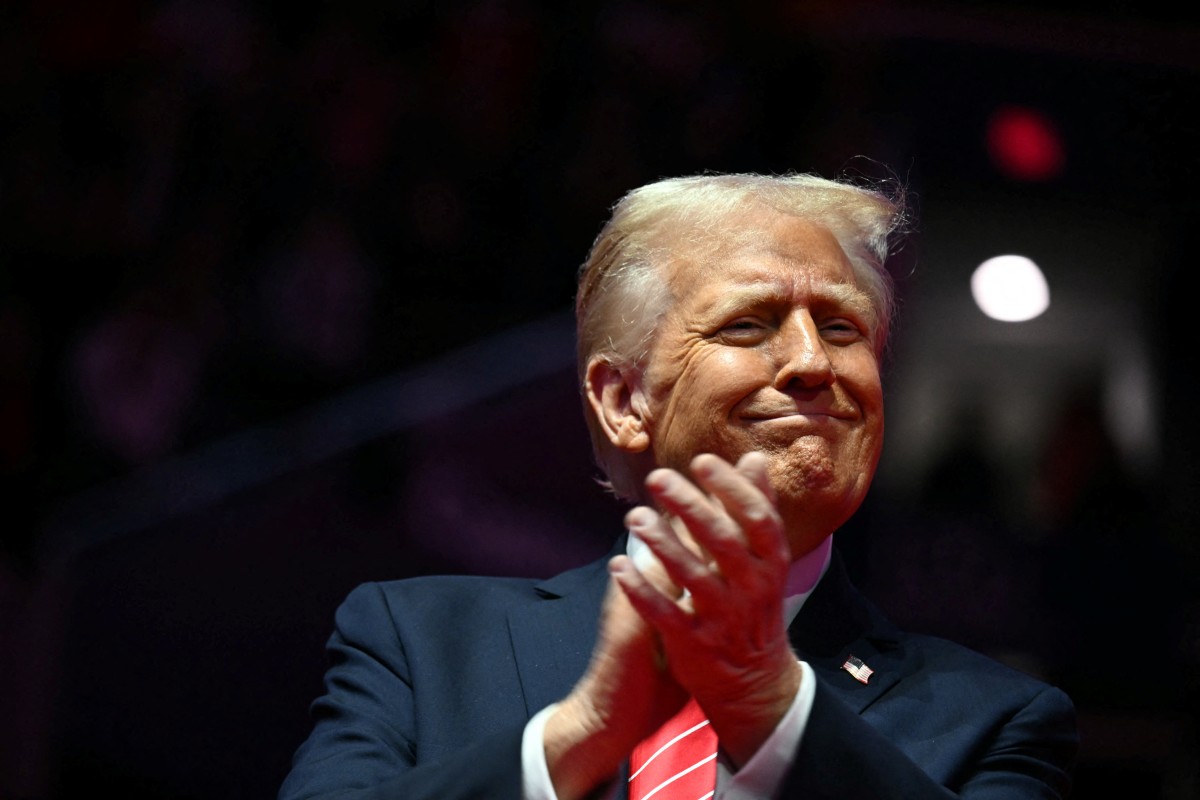Tariffs on imports from Europe, pressure on defence spending, possible cuts in support to Ukraine... these are some of the plans we've heard from incoming US President Donald Trump that could affect life in Germany.
As Trump moves into the White House, we look at how Germany, which is heading towards a nationwide election on February 23rd, could fare in the coming months.
Trade: Are 300,000 jobs at risk?
The biggest fears in Germany relate to trade and the economy. Trump announced import tariffs during his election campaign in a purported bid to strengthen the domestic economy. In Europe, these restrictions would hit Germany particularly hard as it is the strongest export nation.
There are also worries over the effects of these planned tariffs on the job market.
"If these tariffs come, it will also cost jobs in Germany," warned SPD parliamentary group leader Rolf Mützenich. "Overall, it would set the global economy back."
Germany's Süddeutsche Zeitung newspaper recently quoted from a study by the Prognos Institute, which said that 1.2 million jobs in Germany depend on exports to the USA, 300,000 of which could be jeopardised by Trump's tariffs.
The country's already struggling automotive industry would be hit especially hard. Almost one in three Porsches and one in six BMWs were sold in North America in 2024, while VW, Audi and Mercedes-Benz each accounted for 12 to 15 percent.

If this comes to pass, the EU is expected to react quickly. The bloc is planning to respond with retaliatory tariffs on US imports in a bid to get Trump to the negotiating table.
Even if a direct trade conflict between the EU and the US is prevented, new US tariffs against China could have an impact on Europe, because they could lead to Chinese companies entering the European market more aggressively.
READ ALSO: How Trump's return could hit the German economy
Ukraine: Will Germany have to fill the gaps?
During the election campaign, Trump boasted that he would be able to end the Russian war of aggression against Ukraine within 24 hours. He has since conceded that it could take six months - which is clearly still an ambitious target. Concerns have been raised over whether he could try to force movement to reach his goal.
There is speculation that Trump could, for instance, restrict aid to Ukraine in order to force Kyiv to the negotiating table. As Ukraine's second-largest arms supplier after the USA, Germany could then find itself under pressure to act.
However, Chancellor Olaf Scholz, of the Social Democrats, has expressed confidence in recent days that he will be able to find a common line with Trump on Ukraine policy. "I therefore do not expect the USA to stop supporting Ukraine in its defence," he said on Friday.
Nevertheless, aid to Ukraine is already a contentious issue in the German election campaign. Scholz has suggested he'd agree to further arms deliveries totalling €3 billion if the 'debt brake', which limits spending, is dropped.
The Christian Democrats (CDU) and their Bavarian sister party, the CSU, the Greens and the Free Democrats (FDP) are more open to the idea of upping aid regardless of the circumstances.
READ ALSO:
- The key party pledges that will affect foreign residents in Germany
- Why Germany may finally reform its debt brake
Defence spending: Will it be hiked up?
Trump's demands for more defence spending are already familiar from his first term in office from 2017 to 2021. Back then, he primarily urged Germany to meet the NATO target of investing two percent of gross domestic product (GDP) in its military.
This time, he has been demanding defence spending of five percent of GDP. "They can all afford it," he said of the allies at a press conference at his Florida estate.
READ ALSO: What would a second Trump presidency mean for Germany?
According to the latest NATO statistics, Germany reached the two percent of GDP spending mark last year for the first time in decades. In purely mathematical terms, five percent would mean defence spending of well over €200 billion in 2025 with an expected GDP of €4,400 billion - and with a planned total budget of around €489 billion.
Scholz has already made it clear that he is not prepared to do this. "That would only be possible with massive tax increases or massive cuts to many things that are important to us." Nevertheless, Trump's demand is not being taken lightly in the Chancellery.

In NATO, the discussion about higher defence spending is already in full swing - but more in the direction of three or 3.5 percent. Green Party candidate for chancellor Robert Habeck and CSU leader Markus Söder have also suggested figures along these lines.
However, CDU leader and chancellor candidate Friedrich Merz indicated he was open to the hiked up spending. "Trump is now speeding up a process in Europe that we should have undertaken," said Merz of the debate over financial contributions to the transatlantic military alliance.
Different strategies: Will it cause tension?
How will German politicians deal with Trump in the first weeks of his second term, which coincide with the finals weeks of the Bundestag election campaign?
Well, things have got off to a rocky start. According to a confidential cable leaked on Sunday by German newspaper Bild, Germany's ambassador to the United States Andreas Michaelis told the German Foreign Ministry he is worried about Trump's "plans for revenge" and warned his planned "strategy of maximal disruption" could weaken democracy in the US.
With Michaelis due to represent the German government at Trump's inauguration, things could get awkward.
Meanwhile, Chancellor Scholz spoke out publicly against Trump's recent territorial claims about Greenland.
READ ALSO: Trump's Greenland comment has baffled EU, says Scholz
The CDU/CSU, frontrunner according to German election polls, is keeping a lower profile. CDU foreign affairs expert Jürgen Hardt was set to attend the inauguration in Washington on Monday. Meanwhile, CDU Merz wrote a handwritten letter to Trump for the swearing-in ceremony.
The party in Germany cosying up to Trump (and his advisor Elon Musk) the most, however, is the far-right Alternative for Germany (AfD).
The AfD said its co-leader Tino Chrupalla had "accepted an invitation" to the January 20th inauguration event and would be accompanied by the party's deputy parliamentary group leader Beatrix von Storch.
Chrupalla said that the Trump presidency would "change the world for a long time" and that his party "stands ready to be a strong partner in Europe".
But it's worth keeping in mind that the AfD, which is second in polls behind the CDU/CSU, is not expected to enter into a coalition government in Germany after the election - because all mainstream parties have refused to work with the far right.
READ ALSO: How would a strong AfD election result impact foreigners in Germany?
With reporting from DPA

Comments (1)